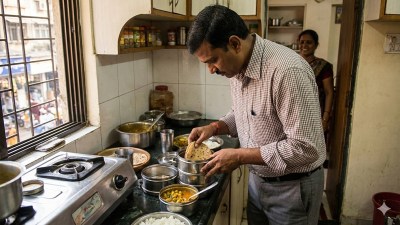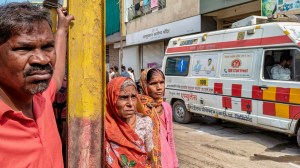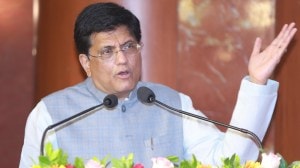Orbiting the NPT
If there is a moment for India to signal its strong support to an effective global regime on non-proliferation, it is now. Yesterday the mon...

If there is a moment for India to signal its strong support to an effective global regime on non-proliferation, it is now. Yesterday the month-long Seventh Review Conference of the Nuclear Non-Proliferation Treaty got underway at the United Nations in New York. Any suggestion that India should be sending a reconciliatory message to the NPT system, which has for long symbolised the essence of India8217;s nuclear problems with the world, would surprise many Indians.
When global consensus was reached on the indefinite and unconditional extension of the NPT, exactly ten years ago, New Delhi seethed with anger. Fortunately it had a sensible fallout in helping India overcome one of its fondest illusions 8212; that universal nuclear disarmament will one day replace the discriminatory non-proliferation order. Amidst the shattering of its disarmament illusions, India refused to sign the Comprehensive Test Ban Treaty and accelerated its nuclear weapons programme. The then prime minister, P.V. Narasimha Rao, came close to testing nuclear weapons in December 1995. Although Rao8217;s famous second thoughts forced him to back off, the logic of his first thoughts on exercising India8217;s nuclear option turned out to be too powerful. What Rao failed to do, Atal Bihari Vajpayee did in May 1998. Since then India8217;s nuclear diplomacy has come a long way.
India now sees itself as a responsible nuclear weapon state, ready to help the world effectively manage the global nuclear order. Much of the world, however, found it difficult to accept India8217;s nuclear tests in 1998 and sought to punish it. France and Russia were the honourable exceptions. Now the Bush administration, too, is suggesting that India must be treated as a part of the solution to the problem of nuclear proliferation. As India and the US intensify the effort to negotiate a settlement of the nuclear problem in the bilateral context, a delicious irony has marked the multilateral debate on NPT at New York.
Guess who is pressing India to sign the NPT? It is the non-aligned world! 8220;Universalisation of the NPT membership8221; is one of the clarion calls of the non-aligned bloc at the Review Conference. Fortunately for India, the majority rarely has its way on nuclear issues. India also has little time for a 8220;thirteen point charter8221; that the non-nuclear states have been peddling at the NPT Review Conferences. The thirteen-point charter adopted at the 2000 Review Conference among other things calls on all states to sign the NPT and the CTBT. The Bush administration, in contrast, is saying the charter is a mere historical document that has no operational relevance today. Washington is saying the problem of proliferation today does not rest with India, Pakistan and Israel. The central challenge, it argues, lies with those states that have voluntarily signed the treaty to give up their nuclear option but are trying to exercise it now in a clandestine manner.
The US is also arguing that effective implementation of a non-proliferation regime demands some major adjustments within the NPT as well as the creation of new structures outside it. As a nation outside the NPT, India should have little problem with this approach. Unlike the Clinton administration and its non-proliferation hawks, the Bush administration recognises the importance nuclear power in meeting global energy demand, especially in China and India. The Bush administration is arguing that there should be a new set of rules 8212; stricter than those under the NPT 8212; governing peaceful nuclear commerce. It is an idea that is being strongly resisted by many non-nuclear countries. As the global debate on non-proliferation enters a crucial phase, India needs to intervene, purposefully. As a nation that has tried to shape global nuclear politics from the dawn of the atomic age, it cannot remain a passive spectator.
Any creative Indian intervention in the current non-proliferation debate will have two dimensions 8212; a clarification on where India8217;s own atomic weapons stand in the global nuclear order. The other is to come up with new ideas on how to stem the tide of global proliferation. Together these two themes lead to a number of actions/statements on India8217;s part.
First, India needs to reiterate that it is a nuclear weapons state irrespective of how the NPT defines a nuclear weapons state. Second, India needs to affirm that despite being outside the NPT, it behaves like a nuclear weapons state party to the NPT. India8217;s record on transfer of nuclear technology and its current plans to introduce a tough domestic law on criminalising proliferation are testimony to its standing as a responsible nuclear weapons state. Third, India must promise to put much of its civilian nuclear programme under international safeguards and implement, like other nuclear weapons states, the additional protocol of the International Atomic Energy Agency, if the current ban against nuclear technology transfers to India is lifted. Fourth, India must underline the importance of nuclear power in global energy security. To address the link between energy and weapons, India must support proposals for restricting key elements of the nuclear fuel cycle to a few places controlled by the IAEA. Fifth, as a nuclear weapon state and a country with a large civilian nuclear industry, India must offer to host the internationally controlled enrichment and reprocessing facilities on its soil.
While supporting restrictions on access to fissionable materials, India must actively support demands of the non-nuclear states for assured supply of nuclear fuel for their power plants from these international facilities. India must offer to help draft model agreements for reliable fuel supply.
Finally, there is no reason for India to equate the NPT with the global nuclear order. While supporting the strengthening of the NPT system, India must participate in the new and more effective mechanisms outside it such as proliferation security initiative. Since India is not participating in the NPT Review Conference, it must find other ways to convey its positions on non-proliferation to the international community. A statement by the prime minister in Parliament in the next couple of weeks on the subject could be one way of doing this.
- 01
- 02
- 03
- 04
- 05































